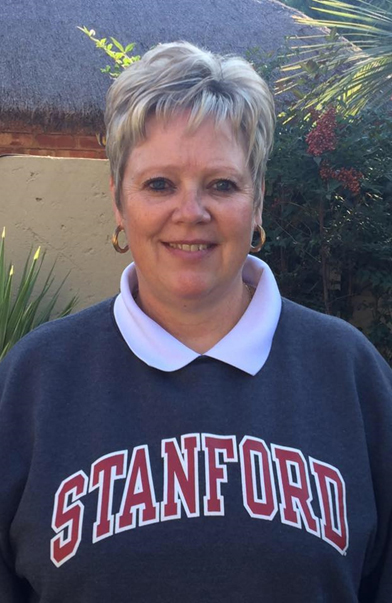While debates about the quality of teacher education intensify, the North-West University (NWU) is exploring solutions, including mixed reality, that will ensure that well-prepared and effective teachers enter the country’s classrooms.
The recent findings of the 2021 Progress in International Reading Literacy Study (PIRLS), indicating that 81% of South Africa’s Grade 4 learners cannot read for meaning, have reignited the debate about the quality of pre-service teacher preparedness in the education sector.
Criticism of teacher education has escalated following the publication of results from international reading assessments such as PIRLS 2011, 2016 and 2021, focusing on learners’ reading literacy achievements. The latter study was conducted at the peak of the Covid-19 pandemic.
According to Prof Carisma Nel, research professor at the School of Language Education, these types of studies generate public concern about learner outcomes, and by implication about the quality of teaching, resulting in questions about the quality of teacher education.
“These questions cannot be dismissed out of hand, given that there is widespread international agreement on the critical importance of teacher quality, with research evidence indicating a strong link between teacher effectiveness and learners’ learning outcomes. If teachers are not adequately skilled and able to support learners’ needs, it is unlikely that the quality and equity of education will be improved,” says Prof Nel.
Similarly, increased participation in the teacher sector in South Africa brings with it challenges regarding access to, and success in, this sector. Questions of access to and success in initial teacher education, specifically those students specialising in language and structured reading literacy, are vital, as many students seeking to enter the sector do not necessarily come from backgrounds that have prepared them adequately for participation.
According to the Centre for Educational Testing for Access and Placement at the University of Cape Town (2020), students applying to education faculties are among the academically weakest applicants in any faculty. Clearly there is a large gap in the language skills of students entering initial teacher education (ITE) and the skills teachers need if they are to be effective in schools.
“Teachers are often seen as the frontline of defence in efforts to prevent reading problems. However, at present, not only are far too few teachers proficient in scientific evidence-based reading instruction, but far too many of the programmes that prepare the country’s teachers are failing to give them the grounding they need to become proficient,” Prof Nel says.
What is the (possible) solution?
One of the innovations the NWU is focusing on is the use of a mixed-reality classroom environment, where pre-service teachers are given the opportunity to engage with avatars to practise a variety of core reading practices.
According to Prof Nel, mixed-reality simulation (MRS) has been shown to improve pedagogical proficiencies through structured simulated practice. This method has been used extensively in military and medical fields and is now starting to make waves in the education sector.
What does MRS entail?
MRS involves technology-enhanced scenarios that merge the real and virtual worlds. “The technology currently used for mixed-reality student teacher simulations utilises a combination of immersive virtual environments and human-directed in-the-moment puppetry, a model known as human-in-the-loop (HITL). The immersive quality of these environments leads to a suspension of disbelief, leaving participants feeling not as if they are pretending, but that they are interacting in a real-life scenario,” explains Prof Nel.
Furthermore, within the MRS environment student teachers deliver mock lessons, hone their content-specific teaching practices, develop their classroom management skills, and practise new pedagogical skills in a safe and controlled environment while receiving feedback and coaching from mentor teachers as well as teacher educators. The technology enables student teachers to develop their teaching practice before working with real learners.
“I believe that more of the same will not address the challenges that South African teacher preparation programmes face regarding the teaching of language, literature and literacy. Game changers are required, and one of the game changers is the use of mixed-reality simulation. MRSs can provide student teachers – both contact and distance students – with the opportunity to practise specific language, literature and literacy teaching skills and competencies in English and Afrikaans, and soon in Setswana and isiXhosa. This is done in a controlled environment without the risk of causing harm to actual learners, while providing equitable practice-based opportunities to all student teachers. This is a scenario that is not possible during school-based practicum opportunities,” concludes Prof Nel.

The importance of efficient pre-service teacher training is being addressed as a matter of urgency at the NWU. Prof Carisma Nel says innovative methods are needed if education outcomes in this country are to be improved.
Prof Charisma Nel talks about her research.
